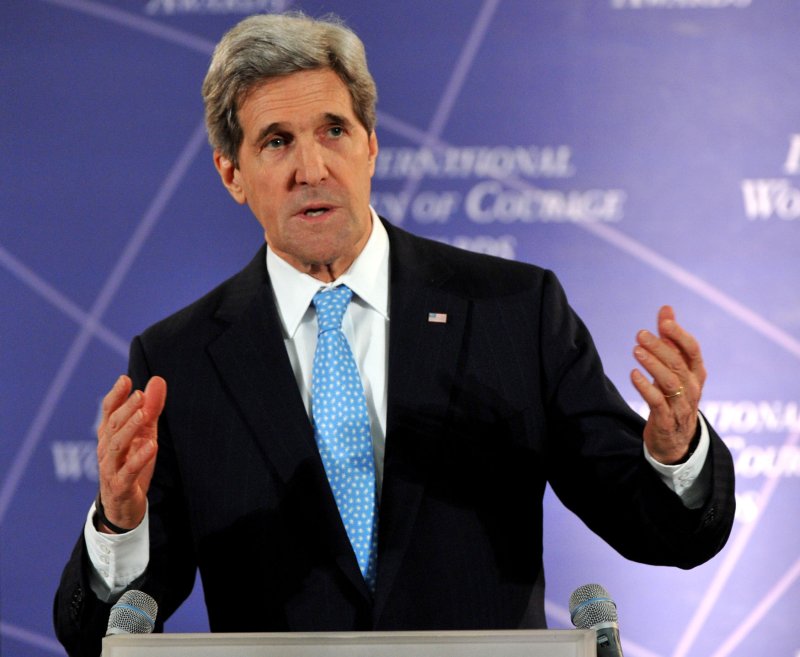Secretary of State John Kerry in Washington March 8, 2013. UPI/Kevin Dietsch |
License Photo
KABUL, Afghanistan, March 25 (UPI) -- U.S. Secretary of State John Kerry decided to skip Pakistan on his diplomatic tour because he didn't want his visit to be misinterpreted, an official said.
In a briefing as Kerry arrived in Afghanistan for discussions with President Hamid Karzai, the official said "given the state of conspiracy theories" in Pakistan Kerry preferred to visit the country after its May elections, the Los Angeles Times reported.
"[Originally] Secretary Kerry was hopeful that he would be able to go to Pakistan on this trip as well, but as the government there really enters a very historic period in this electoral process, we wanted to fully respect those institutions and the ongoing process, and so not travel there this time but go there at an appropriate time in the future," an administrative official said before Kerry arrived in Afghanistan.
Anti-American feelings are running high in Pakistan, fueled in part by anger over drone strikes many Pakistanis say violate the country's sovereignty, observers say.
Kerry and Karzai will discuss issues related to transferring security responsibilities to Afghanistan as more international forces prepare to leave, political reconciliation and Afghanistan's elections, among other things, the official said.
"[We] are committed to working through them as partners and ensuring that we resolve these issues constructively, because that's what's in the best interests of both the American and the Afghan people, and we'll continue to do so."
Earlier this month, observers said, Karzai embarrassed U.S. Defense Secretary Chuck Hagel by alleging during Hagel's first visit that the United States and Taliban were colluding in Afghanistan so they can both keep their presence in the country. Administrative officials tensions since then have eased.















